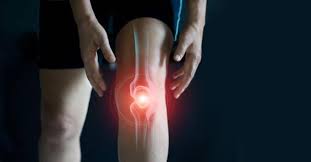
Chronic Joint Pain and Depression May Accelerate Cognitive Decline in Older Adults, Study Finds
Joint pain doesn’t just affect mobility—it may also contribute to faster cognitive decline when combined with depression, according to a recent study tracking nearly 5,000 older adults over 12 years. The research, published in the journal Aging & Mental Health, highlights a troubling link between these two common conditions and the brain’s ability to retain memory and cognitive function.
Led by Patrícia Silva Tofani, a gerontology researcher at the Federal University of Sergipe in Brazil, the study found that individuals suffering from both chronic joint pain—such as in the knees or hips—and symptoms of depression experienced significantly faster memory loss and global cognitive decline than those who only had one of these conditions.
The Double Burden on the Brain
Tofani suggests that the combination of chronic pain and depression may overload the brain, particularly the hippocampus, a region crucial for memory and cognitive processing.
“There’s an overlap of information, causing the brain to become ‘congested,’” Tofani explained. “The brain must allocate resources to manage both the pain response and depressive symptoms, which interferes with the formation of memory and overall cognitive performance.” Over time, she added, this neurological "congestion" accelerates cognitive decline.
Interestingly, the study noted that this accelerated decline was most pronounced in memory and global cognitive functioning, while executive functions—such as decision-making and planning—remained largely unaffected.
Comprehensive Findings
The researchers analyzed data from the English Longitudinal Study of Aging, focusing on 4,718 individuals aged 50 and older. Participants were assessed on six cognitive domains: memory, attention, language, perceptomotor abilities, executive function, and social cognition.
The results were striking: those with joint pain and depression experienced the sharpest declines in memory and overall cognition. However, no accelerated decline was observed in executive function.
“This distinction is crucial,” Tofani noted, “because memory and executive function are the two most important domains for maintaining autonomy in older adults. Memory impairment directly threatens their ability to live independently.”
Implications for Elderly Care
Co-author Tiago da Silva Alexandre emphasized the importance of recognizing and treating both conditions, pointing out that joint pain and depression are often dismissed as inevitable aspects of aging.
“It’s common for symptoms of depression and pain to be overlooked as normal aging factors,” Alexandre said. “This misunderstanding can lead healthcare professionals to minimize complaints from older adults, leaving treatable conditions unaddressed.”
The study underscores the need for targeted interventions to manage arthritis and depression in older adults. Proper treatment could preserve not only their physical mobility and emotional well-being but also their cognitive health, enabling them to maintain independence longer.
A Call for Action
The findings serve as a reminder that aging does not inherently mean cognitive decline or unmanageable pain. Addressing these conditions early and holistically could help millions of older adults maintain a better quality of life.
“By valuing and addressing these complaints during consultations, healthcare providers can protect both mood and cognitive function,” Alexandre concluded, offering hope for a healthier, more independent aging population.